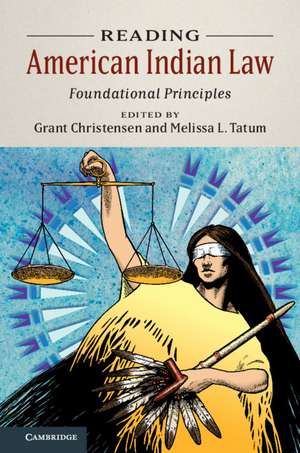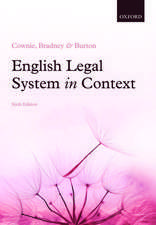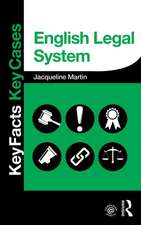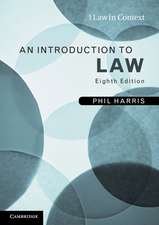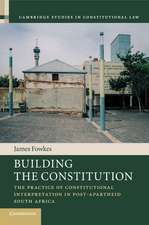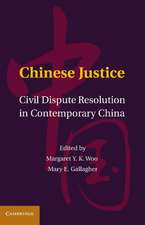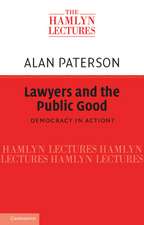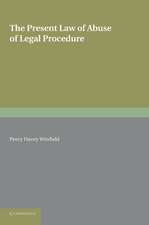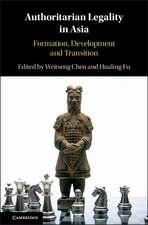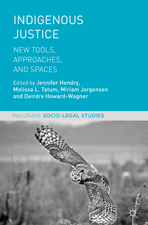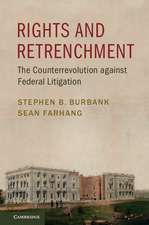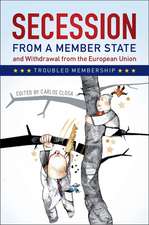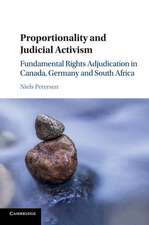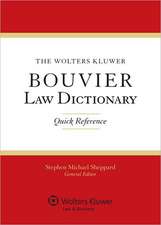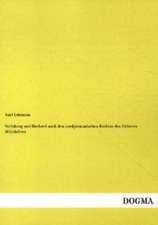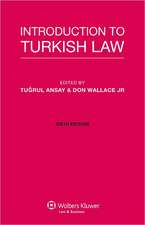Reading American Indian Law: Foundational Principles
Editat de Grant Christensen, Melissa L. Tatumen Limba Engleză Paperback – 11 dec 2019
| Toate formatele și edițiile | Preț | Express |
|---|---|---|
| Paperback (1) | 417.04 lei 38-44 zile | |
| Cambridge University Press – 11 dec 2019 | 417.04 lei 38-44 zile | |
| Hardback (1) | 676.45 lei 38-44 zile | |
| Cambridge University Press – 11 dec 2019 | 676.45 lei 38-44 zile |
Preț: 417.04 lei
Nou
Puncte Express: 626
Preț estimativ în valută:
79.80€ • 83.32$ • 65.90£
79.80€ • 83.32$ • 65.90£
Carte tipărită la comandă
Livrare economică 11-17 aprilie
Preluare comenzi: 021 569.72.76
Specificații
ISBN-13: 9781108726481
ISBN-10: 1108726488
Pagini: 448
Dimensiuni: 153 x 228 x 25 mm
Greutate: 0.64 kg
Editura: Cambridge University Press
Colecția Cambridge University Press
Locul publicării:New York, United States
ISBN-10: 1108726488
Pagini: 448
Dimensiuni: 153 x 228 x 25 mm
Greutate: 0.64 kg
Editura: Cambridge University Press
Colecția Cambridge University Press
Locul publicării:New York, United States
Cuprins
Editor and contributor biographies; Preface; Acknowledgements; Introduction; Part I. Core Concepts: 1. Marshalling past and present: colonization, constitutionalism, and interpretation in federal Indian law, 107 Harvard Law Review 381 (1993) Philip P. Frickey; 2. The algebra of federal Indian law: the hard trail of decolonizing and Americanizing the white man's jurisprudence, 1986 Wisconsin Law Review 219 (1986) Robert A. Williams, Jr; 3. Red: racism and the American Indian, 56 UCLA Law Review 591 (2009) Bethany R. Berger; 4. (Tribal) sovereignty and illiberalism, 95 California Law Review 799 (2007) Angela R. Riley; Part II. Voices: 5. 'Life comes from it': Navajo justice concepts, 24 New Mexico Law Review 175 (1994) Robert Yazzie; 6. Tribal court praxis: one year in the life of twenty Indian tribal courts, 22 American Indian Law Review 285 (1998) Nell Jessup Newton; 7. Beyond Indian law: the Rehnquist Court's pursuit of states' rights, color-blind justice and mainstream values, 86 Minnesota Law Review 267 (2001) David H. Getches; 8. A narrative of sovereignty: illuminating the paradox of the domestic dependent nation, 83 Oregon Law Review 1109 (2005) Sarah Krakoff; Part III. Property: 9. Sovereignty and property, 86 Northwestern University Law Review 1 (1991) Joseph William Singer; 10. The legacy of allotment, 27 Arizona State Law Journal 1 (1995) Judith V. Royster; 11. A common law for our age of colonialism: the judicial divestiture of Indian tribal authority over nonmembers, 109 Yale Law Journal 1 (1999) Philip P. Frickey; 12. In defense of property, 118 Yale Law Journal 1022 (2009) Kristen A. Carpenter, Sonia K. Katyal and Angela R. Riley; Part IV. (Mis)Understandings: 13. Dependent sovereigns: Indian tribes, states, and the federal courts, 56 University of Chicago Law Review 671 (1989) Judith Resnik; 14. There is no federal Supremacy Clause for Indian Tribes, 34 Arizona State Law Journal 113 (2002) Robert N. Clinton; 15. American Indians, crime, and the law, 104 Michigan Law Review 709 (2006) Kevin K. Washburn; 16. Factbound and splitless: the Certiorari process as barrier to justice for Indian tribes, 51 Arizona Law Review 933 (2009) Matthew L. M. Fletcher.
Recenzii
'This important work provides insight into the most pressing issues of American Indian law. Its strengths lie in its organization and the expertise of the contributors … this is a substantive work.' F. E. Knowles, Choice
Descriere
Approaches the study of Indian law through the lens of 16 of the most impactful law review articles.
